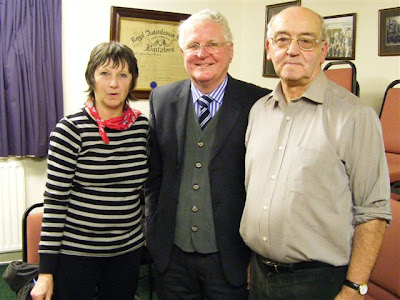Integrated Transport- Environmental Considerations
The building of another runway at Heathrow would cost somewhere in the region of £10 billion. Then there would be the attendant destruction of local amenities along with further world wide air pollution. Those arguing in favour of a new runway tend to stress the jobs it would create and the need for the economic survival of Britain’s air transport facilities - although the latter claim is as silly as the notion that the moon is made of green cheese.
The facts are that about a third of the flights in and out of Heathrow are short haul ones and could, therefore, quite easily be catered for by an expanded railway system. Such a move would also increase short and long term employment. The cash which is to be shovelled into the building of a new runway could instead be used to expand the railway system, encompassing new track and rolling stock which could incorporate new technology including an automated service which has been on the cards for some 20 years or more.

Indeed the Victoria Line on London Underground uses an advanced technology which only needs a driver to sit in the cab, which is only needed as a means of security for the travelling public. Such technology has improved beyond all recognition, although the general public are unaware of this innovation. Such technology used on the railways is far more efficient, safer and less costly than flying, car use and bus travel. It is also better for the environment in cutting out air pollution and carbon emissions.
Before, however, the above proposals can be put into place, we would have to see a general improvement in the political education of the people of this country. At the present time thinking is generally centred upon privatisation and the use of private capital. It has to be said, however, that these cannot provide the wherewithal to meet my proposals. Nor do such avenues themselves believe they could supply what is necessary. To follow an unbridled competitive system is to ensure that the devil takes the hindmost.
In such a situation, an alternative dogma of sorts is the only answer to privatisation. Indeed what is privatisation other than a dogma and one which transgresses upon people’s lives in as much as it provides substandard services at high prices.
Nevertheless, dogma or not what is need is as Dronfield Blather puts it - a transport system integrated in such a way as to be of benefit to all and not the few.
The role of railways in an integrated transport system would require a curb being placed on the need for the use of heavy road transport. Here we have to tackle another dogma from the Road Haulers and their drivers against goods traffic travelling by rail. It was a post-war Conservative Government which transferred the bulk of goods traffic onto the roads, altering a pattern that was established from the time the railways were invented.
The 1945-51 Labour Government appointed General Sir Brian Robertson as Commissioner for Transport in 1947. He resigned in 1955 because he saw no value in the job, due to he Conservative transport policy at that time.
So any alteration in which we move to a social transport system would need the appointment of a Transport Minister with an appropriate briefing and an appropriately restructured Transport Department.
Whilst we have a free-for-all service in which the devil takes the hindmost, the notion of public service transport is mere pie in the sky. At present we have commitments to a belief in anarchy in the transport field, which produces “answers” without any depth of explanation.
The savings from a properly run transport system would far outweigh its costs in every sector of industry. To this we need to add the environmental savings, reduced costs associated with deaths and injuries. An expanded and up-to-date rail system is as necessary as food to a hungry man. No society worth its salt should have to endure the endless death and injury sustained by the present roads policy which privatisation and this mad rush for profit has provided us with. It is a sure sign of decadence.
There are no drawbacks to the policy I advocate, only positives. It would provide a forward movement unparallel in history and provide an education about the use of standards which would be far reaching and well worth the enormous effort this entail in taking the people of this country forward in the 21st Century.
Ken Turton






